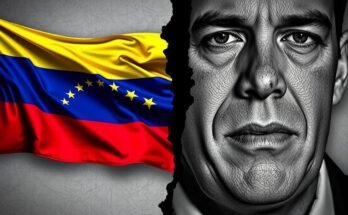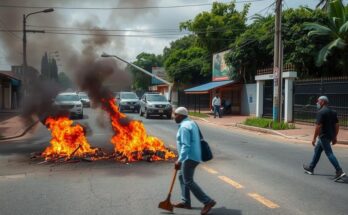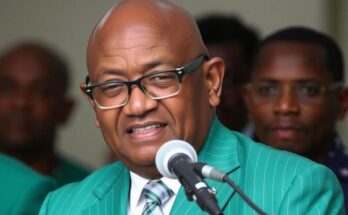In Mozambique, approximately 125 people have died in three days of violence linked to opposition protests against the electoral results, wherein Daniel Chapo of the Frelimo party was declared the winner with 65.17 percent of the vote amidst significant allegations of electoral irregularities.
Recent reports indicate that violent confrontations linked to opposition protests concerning the presidential election results in Mozambique have resulted in approximately 125 fatalities over a period of three days. These tensions have emerged following the confirmation by the country’s highest judicial authority regarding the electoral victory of Daniel Chapo from the ruling Frelimo Party, which has maintained its grip on power since 1975, securing 65.17 percent of the votes cast in the October 9 elections. Despite the victory declaration, international observers have unveiled significant irregularities within the electoral process, exacerbating public dissatisfaction and leading to widespread unrest across the nation.
Mozambique has a history marked by political instability and civil conflict, with the Frelimo Party having dominated the political landscape since the country’s independence in 1975. The recent presidential elections have reignited historical tensions, particularly against the backdrop of previous allegations of electoral misconduct. As opposition groups contest the legitimacy of the election results, the resultant violence reflects deep-rooted frustrations among segments of the population. International observers have increasingly scrutinized the elections, indicating a growing concern regarding the integrity of Mozambique’s democratic processes.
In summary, the violence in Mozambique following the presidential election is a grim reminder of the country’s turbulent political history. The alarming death toll of 125 individuals underscores the severity of the unrest driven by widespread allegations of electoral irregularities. It highlights not only the immediate consequences of political disputes but also the broader implications for Mozambique’s democratic stability and the ongoing challenges faced by its governance.
Original Source: www.news-shield.com




